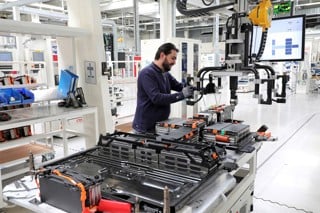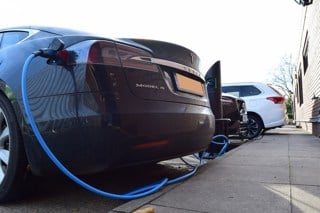Residual values for used electric vehicles (EVs) are growing as demand for zero-emission vehicles ramps up.
Shoreham Vehicle Auctions says the UK has reached a “tipping point of acceptance”.
The electric van market is growing with low mileage business users accepting the benefit of running a used van with very low running costs.
SVA’s managing director Alex Wright said the secret is the education given to dealers and consumers about the features and benefits of an ever-growing range of new and used cars now available.
“EVs need a used market that is alive and prospering. That’s why we have seen greater acceptance during 2018 and into 2019 which has boosted residuals.
“Companies have worked hard on education, including the SVA team’s training courses run in partnership with the Energy Saving Trust,” explained Wright.
“Leasing companies and finance companies can now underwrite EVs confident of a vehicle’s value in three-to-four years’ time which makes monthly rentals more competitive for companies and drivers alike.
“The next step is for the charging infrastructure to respond to market needs and provide a more reliable joined-up network of chargers across the country,” he added.
Wright cites the Nissan Leaf as a recent example of how the used market has changed. In 2017, a 2015 Nissan Leaf 6.6KW Acenta with 20,000 miles on the clock booked at £8,850. In 2019, a 2017 Nissan Leaf 6.6KW Acenta with the same mileage is booking at £11,000, a rise of £2,150.
Recent academic reports such as the one issued by Connected Places Catapult in association with Innovate states that fleets will be key to driving rapid adoption necessary to reach the government’s target of all new car sales being zero emission by 2040.
Wright agrees fleets are key to future adoption, but only with a healthy used market in place.
He believes plug-in hybrids are a major distraction for fleets, with business drivers only adopting them because they provide lower rates of benefit-in-kind tax.
SVA says the majority of plug-in hybrids that go through auction have their charging leads in their original plastic bags unopened, so haven’t contributed to lowering emissions or improving urban air quality.






















Login to comment
Comments
No comments have been made yet.